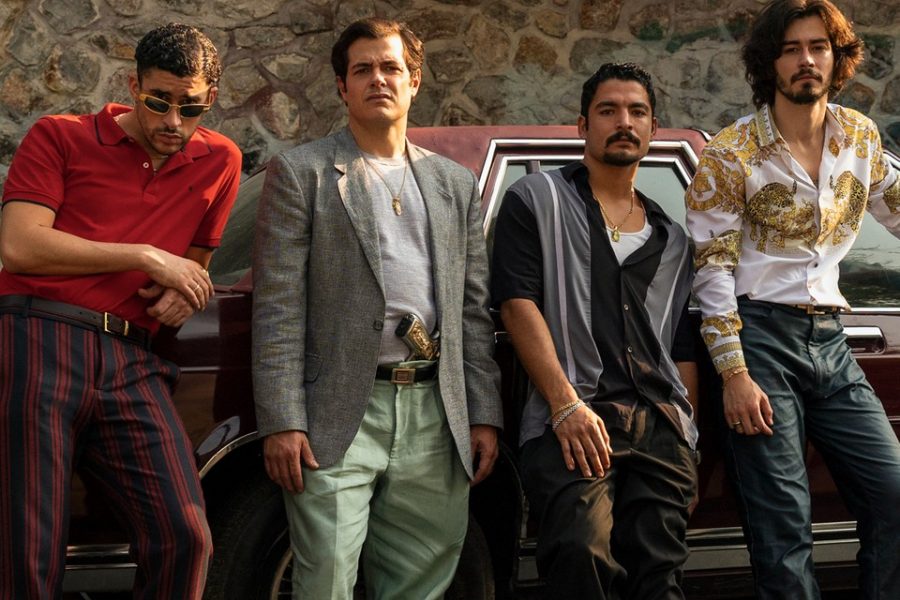Narcos Mexico Season 3: An Ending to a Never Ending Story
Netflix had a tough job to do when they set out to dramatize one of the bloodiest periods in Latin American history. Over half a million people have been victims to the drug war in Mexico since it began in the early 1980s. Netflix’s Narcos: Mexico attempts to tell the story of Mexico’s various drug trafficking empires and the men who ran the game, as well as the law enforcement who tried to stop them.
Narcos: Mexico is the spinoff to Narcos. The original series focused on the country of Columbia and the story of Pablo Escobar and Calli Cartel. But Narcos: Mexico shifts its focus to the country of Mexico and the birth of the Mexican drug business and the violence that came with it.
Seasons one and two focus on the story of Miguel Angel Felix Gallardo, the leader of the Guadalajara cartel, which was Mexico’s first cartel. The story discusses everything from the murder of DEA agent Enrique (Kiki) Camarena that started the drug war to Felix’s arrest in April of 1989.
Season three shifts its focus to Mexico’s new largest drug kingpin during the 1990s, Amado Carillo Fuentes, due to his large fleet of airplanes which he used to smuggle tons of drugs into the United States.
In season one and two, Amando was only a side character, but with Felix Gallardo’s ending monologue, he was alluded to being the main focus of the next season, along with other characters, such as Joaquin Guzman (El Chapo) and the Arellano Felix Brothers, who were leaders of the Sinaloa and Tijuana Cartels respectively, joining as side characters.
The season also brings back Narco’s infamous narrator, in the form of a new composite character named Andrea Nuñez who is a Mexican journalist working for La Voz newspaper to expose government corruption. While the previous narrator, Walt Breslin, is still in the show, playing a major role as a DEA agent working to take down traffickers, he is set to the sidelines.
This is a welcome change, as it almost seemed like the narrator simply existed because the show’s American audience needed someone to explain what was happening. Andrea is a much better narrator than any previous one, as she only comes in to explain things the audience wouldn’t otherwise know rather than simply saying exactly what is on the screen like her predecessor.
The show once again does an excellent job at dramatizing these events and humanizing everyone involved. A great example of this is another new character, Victor Tapia who is a Juarez police officer who is shocked by the murder of dozens of women in the city of Juarez during the 1990s. While he himself is not a real person, his addition helps ground the very real events he is placed in and helps us emotionally connect with what is happening, something a regular documentary would not be able to do.
It is the same with the previously mentioned Walt Breslin, who while also not being a real character, helps us connect with the struggles of dealing with the violence and PTSD caused by the drug war.
Every character is well developed and analyzed to the point that you almost forget that every event depicted by the show actually happened.
The show’s message about how the drug war was not just black and white is a welcome one to the American audience who inevitably have their own biases as an outside perspective.
Considering this is the last season, the only complaint I would have is how this is the ending. The story of Mexico’s drug war continues to this day and a couple more seasons would have been welcome to continue with the story and how it leads to the Mexico of today.
In conclusion, if you want a gripping crime drama, Narcos: Mexico is the number one choice. And if you already watched the first two seasons, season three is the best the show has offered so far.
Your donation will support the student journalists of Cape Coral High School. Your contribution will allow us to purchase equipment and cover our annual website hosting costs.

Originally from Ecuador, Humberto Carralero enjoys creative writing, videogames. He's a train enthusiast. He wants to be a lawyer.







